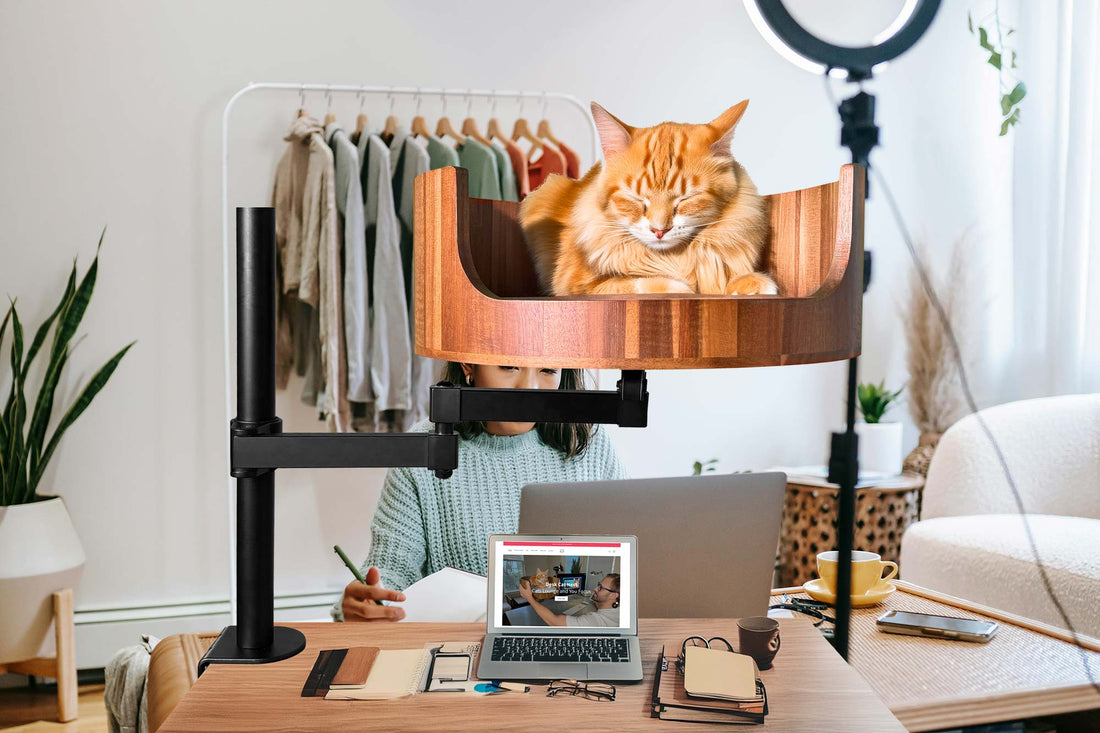
Why Does My Cat Breathe Loud: Understanding Feline Breathing
Share
If you've ever found yourself wondering why your cat is breathing so loud, you're not alone. Feline breathing can vary in sound and intensity, leading many pet owners to question if their furry friend is experiencing respiratory issues. Understanding the reasons behind why your cat may be breathing loudly can help ease your worries and ensure your cat's health and well-being. In this article, we will delve into the various factors that can contribute to loud breathing in cats, from natural physiological reasons to potential health concerns that may require medical attention.
One common cause of loud breathing in cats is simply their anatomy. Cats have a unique respiratory system that allows them to take in more oxygen with each breath compared to humans. This means that their breathing can sometimes be louder, especially during periods of increased physical activity or excitement. Additionally, certain breeds of cats, such as flat-faced breeds like Persians and Himalayans, may naturally breathe louder due to their facial structure. However, loud breathing can also be a sign of underlying health issues such as asthma, allergies, respiratory infections, or heart problems. It's important to pay attention to subtle changes in your cat's breathing patterns and seek veterinary care if you have concerns about your cat's respiratory health.
1. Cats may breathe loudly due to various reasons, such as stress, obesity, respiratory infections, or underlying health issues.
2. Regular veterinary check-ups are essential to monitor your cat's breathing and overall health.
3. Pay attention to any changes in your cat's breathing patterns, such as wheezing, coughing, or rapid breathing.
4. Keeping your cat at a healthy weight and providing a stress-free environment can help prevent breathing issues.
5. If your cat is experiencing persistent loud breathing, seek professional veterinary advice promptly to address any potential concerns.
Causes of Loud Breathing in Cats
There are several reasons why your cat may be breathing loudly. One common cause is the presence of respiratory issues such as asthma or bronchitis. These conditions can cause your cat to wheeze or breathe noisily. Another possible cause is a blockage in the airway, which can occur due to a foreign object or tumor. In some cases, obesity can also lead to loud breathing in cats, as excess weight can put pressure on the lungs and airways. It is important to consult with your vet to determine the exact cause of your cat's loud breathing.
Symptoms of Respiratory Issues in Cats
In addition to loud breathing, cats with respiratory issues may exhibit other symptoms such as coughing, sneezing, or wheezing. They may also have difficulty breathing, reduced energy levels, and decreased appetite. If you notice any of these symptoms in your cat, it is crucial to seek veterinary attention promptly. Ignoring respiratory issues can lead to serious complications and affect your cat's overall health and quality of life.
Treatment Options for Loud Breathing in Cats
The treatment for loud breathing in cats depends on the underlying cause. For respiratory issues such as asthma or bronchitis, your vet may prescribe medications such as corticosteroids or bronchodilators to help manage the condition. In cases of airway blockage, surgery may be necessary to remove the obstruction. Weight management through diet and exercise can also help alleviate loud breathing in obese cats. It is essential to follow your vet's advice and treatment plan to ensure the best outcome for your feline companion.
Preventing Respiratory Issues in Cats
While some respiratory issues in cats cannot be prevented, there are steps you can take to reduce the risk of loud breathing in your pet. Keeping your cat at a healthy weight through a balanced diet and regular exercise can help prevent obesity-related breathing problems. Avoid exposing your cat to cigarette smoke or other environmental pollutants that can irritate the respiratory system. Providing regular vet check-ups and vaccinations can also help detect and prevent respiratory issues before they become severe. By taking proactive measures, you can help keep your cat healthy and breathing quietly.
Frequently Asked Questions
Why does my cat breathe loud?
There are several reasons why your cat may be breathing loudly. It could be due to respiratory issues, such as asthma or allergies, obesity, stress, or even a blockage in their airways. If your cat is breathing loudly, it is important to consult with a veterinarian to determine the underlying cause.
Can the Desk Cat Nest help with my cat's loud breathing?
The Desk Cat Nest can provide a comfortable and cozy space for your cat to relax and potentially reduce stress, which may help with their breathing. However, it is not a replacement for medical treatment. If your cat is breathing loudly, it is important to seek veterinary advice.
How can I help my cat breathe better?
There are several ways you can help your cat breathe better, such as keeping their environment clean and free of allergens, providing proper ventilation, and encouraging regular exercise to maintain a healthy weight. Consulting with a veterinarian is also crucial in finding the best solution for your cat's breathing issues.
Is the Desk Cat Nest easy to clean?
Yes, the Desk Cat Nest is designed with easy-to-clean materials, such as removable and washable covers. Regular cleaning and maintenance of the Desk Cat Nest will help ensure a comfortable and healthy environment for your cat.
In conclusion, providing your cat with a comfortable and supportive resting space, such as the Desk Cat Bed, can greatly improve their overall breathing and respiratory health. The elevated design promotes better airflow and reduces strain on their respiratory system, ultimately helping to minimize loud breathing noises. Additionally, the cozy and inviting nature of the Desk Cat Bed encourages relaxation and deep breathing, leading to a quieter and more peaceful environment for both you and your cat. Investing in a Desk Cat Bed is a valuable choice to prioritize your feline friend's well-being and ensure a restful and healthy living space.



















































